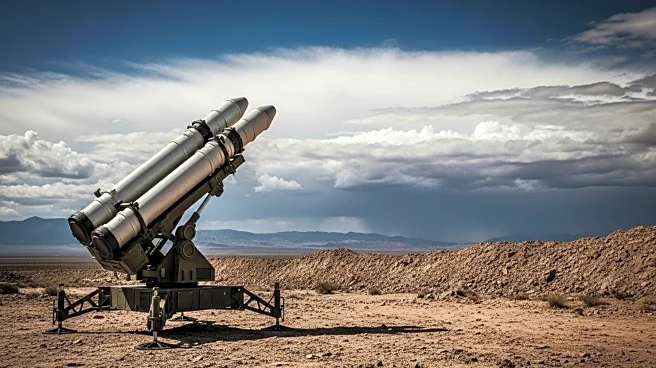What's Happening?
Israeli officials have raised concerns about the Houthi rebel movement in Yemen, which is reportedly preparing for a large-scale incursion into Israel. This plan is said to be modeled on Hamas's October 7 attack and involves training militias for mass infiltration tactics. The Houthis, backed by Iran, have been developing longer-range missiles and explosive drones, moving production underground to reduce reliance on foreign shipments. Israeli intelligence has intensified operations against Houthi infrastructure, focusing on locating command centers and weapons production sites. Recent Israeli strikes in Yemen aim to disrupt these developments and prevent the Houthis from becoming a strategic missile threat.
Why It's Important?
The potential threat posed by the Houthis is significant for regional stability and security. If the Houthis succeed in their plans, they could possess thousands of accurate, long-range missiles, posing a direct threat to Israel and potentially destabilizing the region. The situation underscores the ongoing geopolitical tensions involving Iran and its regional allies, which could have broader implications for international relations and security policies. The U.S. has also been involved, with the Treasury sanctioning entities linked to Houthi financing, indicating international concern over the group's activities.
What's Next?
Israeli military intelligence is expected to continue its operations to map and disrupt Houthi infrastructure. The focus will likely remain on preventing the Houthis from achieving their missile production goals. International pressure, including sanctions, may increase to curb Houthi financing and arms transfers. The situation could lead to further military engagements in the region, depending on the Houthis' actions and the effectiveness of Israeli operations.
Beyond the Headlines
The Houthi threat highlights the complex nature of regional conflicts, where non-state actors play significant roles. The indigenization of weapons programs by groups like the Houthis and their backers complicates traditional military strategies, requiring innovative approaches to counter these threats. The situation also raises ethical questions about the impact of military operations on civilian populations and the long-term consequences of sustained conflict in the region.









